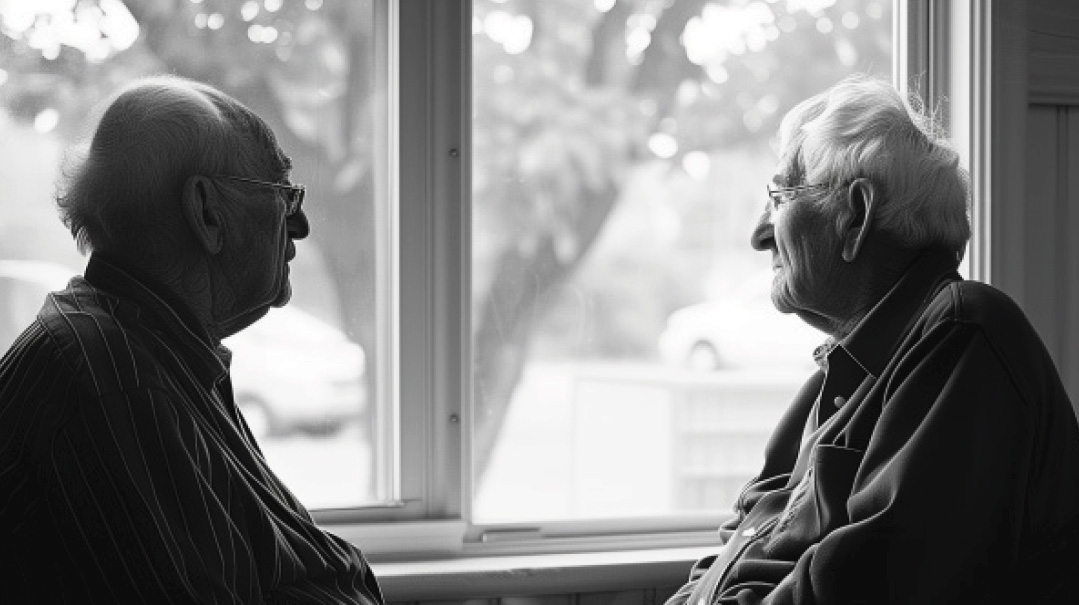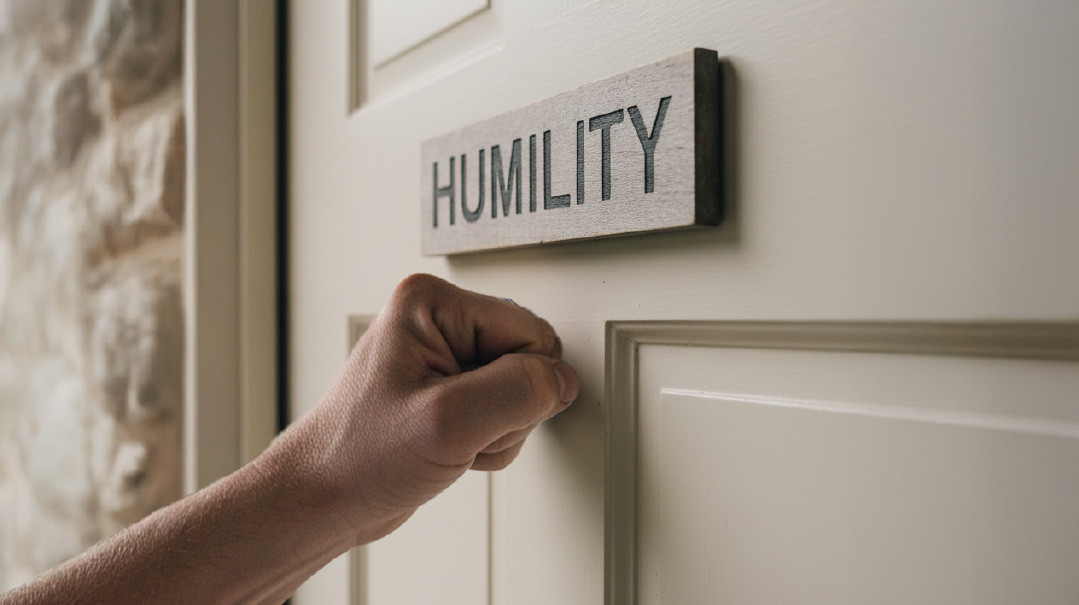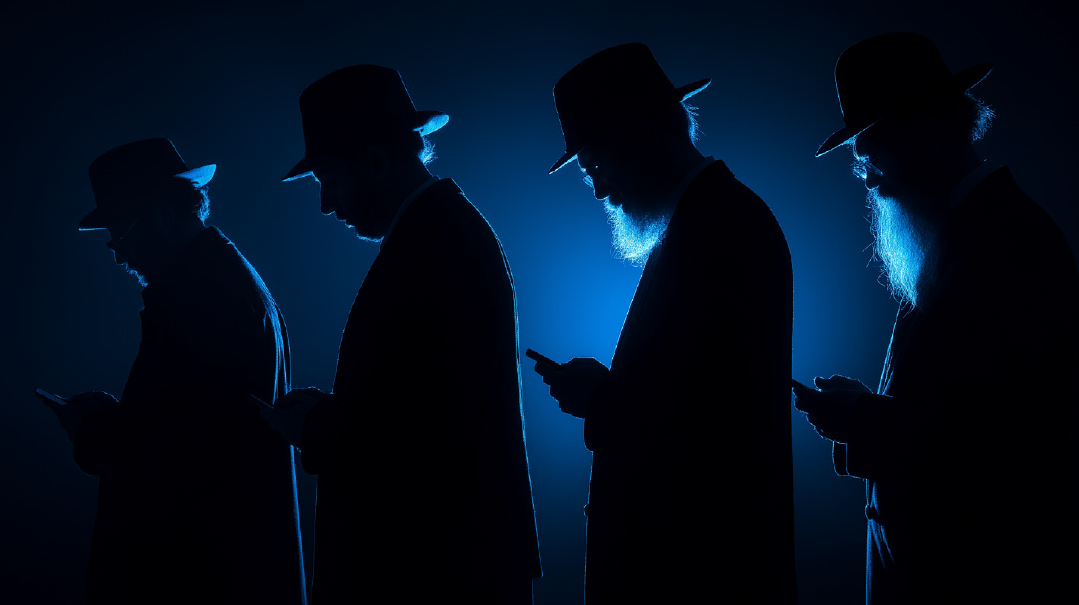Byron and Norris
| July 2, 2024Two lonely friends in a lonely place. Friends who, very different though they were, had each other

“I am blessed.”
That is what Norris Oler would answer whenever I asked how he was doing. I always thought it was a remarkable answer, given that his living space was about 8 feet by 12 feet, which had to include his bed, clothes closet, and the rest of his worldly possessions.
Words can sometimes come easily, certainly more easily than actions, and it was Norris’s actions that especially impressed me. Norris was the roommate (if that’s the word) of my longtime friend Byron Bronstein. Byron and Norris lived in the same skilled nursing facility; they would both have been homeless without it. Byron could be cantankerous, and Norris, within this cramped space, never got upset with Byron and never insisted on his due. If Byron, due to his Crohn’s disease, needed the facilities for a lengthy period, Norris never said a word. Norris was kind —it seemed he was kind by nature — but it was more. It was as if he had a professional objectivity, a dispassionate view of Byron’s issues. He judged neither them nor Byron, only tried to help.
Norris shared with me his own struggles with alcoholism. He ruined his life, he said; and, he repeated, it was all his own fault. He hadn’t had a drink in some 30 years, but he ruined a rewarding career in the US Air Force. So, whatever its provenance, Norris’s character shone through. In a tiny living space with a roommate burdened by his own past, Norris was blessed.
Byron Bronstein became part of my life, and almost like a member of our family. Roughly 15 years ago, I noticed his name as the signatory of a letter to the Intermountain Jewish News. It was highly intelligent. It reminded me of a name — Bronstein — I had not heard for decades, since the old days at a shul in a neighborhood that had long lost its Jewish character. I asked my secretary whether she could locate where Byron lived, and she did. When I heard he lived in a facility, I decided to visit him. Ever since, on Erev Shabbos, I have spent some time with Byron Bronstein.
These were lonely visits, and wonderful visits. Byron would often refer to his “good friends.” None, however, ever visited him. They may not have even known where he was. Byron was divorced. He had neither parents nor children. Perhaps most starkly was the drastic contrast between Byron and the other residents of the facility where he lived. On Byron’s walls were diplomas. He had a law degree. He had a master’s in history from Cal Berkeley. He had been a student of a Nobel Prize winner there, who, in a letter of recommendation, wrote that Byron was “teeming with ideas.” Byron was a brilliant man. He had more education than anyone else in the facility and no one to share it with.
I was the only person to visit Byron, he told me often. I enjoyed Byron — I learned a lot; for example, about the Russian Revolution, about which he seemed to know everything — but I also was pained. I could not help him break through his OCD. He relived for me countless times a few selected traumas from his past, such as the time he was evicted from his apartment and his magnificent library was put out on the street. He could not meet his rent that month — because he was in the hospital the day it was due, he said.
I learned from Byron that people with mental illness need human contact the same as the rest of us; actually, if anything, more so. Byron was feisty. He had his opinions and expressed them without regard for their impact. When he first expressed them to me, I was skeptical. What astonished me over time was that they always checked out.
For example, he told me he was fired from a teaching job in the public schools because he had told he class, “The Lutherans caused the Holocaust.”
I thought to myself, I could see why they fired him. But I had learned that however undiplomatically put, Byron always had a point. So I asked him, “What do you mean?”
He said, “Go back to the election data for Hitler’s democratic rise to power in Germany in 1932. His support from Lutherans swung the election for him.”
Like Norris, I was not there to judge. I did not point out that there are different ways to put things; Byron did not have the interpersonal skills to absorb that. But I did marvel, as I often did, at the extent of his knowledge (despite the fact that much else had to be in place for the Holocaust to happen). Yes, Byron made wild statements, but, as I say, they checked out.
For example, he told me that his distant relatives included Emma Goldman (the fiery American anarchist) and Trotsky (remember, Trotsky’s given name was Bronstein). If I recall correctly, he also told me he was related to the surgeon who did the lobotomy on JFK’s sister. I asked him about all this. He traced his exact relation with historical personages and others.
I would bring Byron two challos for Shabbos on these Friday afternoons. Judaism did not seem to have been part of his life for a long time, but he appreciated the challos. On other holidays, I brought him other Jewish items, like hamantaschen before Purim and shemurah matzah and grape juice before Passover (no wine allowed in the facility) and apples and honey for Rosh Hashanah. At a certain point, I asked whether he would like a siddur, and he said he would. I brought that, too, though I am not sure he opened it.
I learned my limits the hard way. One year I asked Byron whether he would like to attend a Passover Seder. He jumped at the opportunity. A place was arranged at a community. However, something happened at the Seder and Byron ended up in the hospital. I visited him. He recovered, but never again did I suggest he attend an event outside the facility, though he desperately needed the fellowship.
He kept saying he wanted to move to Shalom Park (the local Jewish nursing home) because it was a Jewish facility. But he never got around to applying. I think it was just as well. I am not sure how well he would have done with a disruption to his routine.
Byron and I shared a certain commonality of background, having gone to the same shul and the same high school, though we were separated in age by a few years. We could share memories of incidents and people. Also, I live close to where Byron grew up, and he could share memories of the neighborhood. For me, these were painful conversations, since they gave life to Byron only with reference to a distant and irretrievable past, yet they were also rewarding, seeing the way they brought Byron to life.
Especially painful was Byron’s repeated failure to convince the relevant bodies to allow him to practice law. He was denied a license on the ground that he could not competently represent clients, given his mental illness. Byron knew the pertinent licensure laws well — he was excellent at that sort of thing — and petitioned all the way up to the Supreme Court. But he lost. He couldn’t understand why, since, as he put it, the law was on his side. In other contexts, too, he would remark on a given decision that it was wrongly decided; it didn’t follow the law. I had no training in these matters and could not comment, but I did listen. It was painful to see his hopes frustrated and his inability to see why.
At a certain point, either he or one of his relatives expressed an interest in Byron receiving the Intermountain Jewish News. He was very pleased and, indeed, one of his relatives kindly provided him with a subscription. It became his only link to the world of events beyond the facility.
The last couple of years Byron declined. Gradually his spunk diminished. His engagement with historical issues fell away. He stopped walking the hallways and remained in his room and, finally, was confined to bed. We couldn’t have discussions anymore, though he still enjoyed the challos, and I still benefited from visiting him and he still thanked me for coming.
I am thinking back now to an incident a few years ago that shocked me. I came to visit Byron and he was not in his room, nor in the library. After a little bit of investigation, it turned out that Byron was receiving some kind of tutoring in the basement. Why? To keep his mind sharp. As I say, this shocked me. If I ever knew anyone with a sharp mind, it was Byron. But I guess the lack of stimulation over a very long period has its effects. So I shouldn’t have been surprised to see Byron decline, but I was. He didn’t seem to be plagued by dementia, but he lost the strength to engage.
I figured that someday I might speak at Byron’s funeral (at a distance, as I am a Kohein). However, as they say, man plans and G-d laughs (it rhymes in the Yiddish). My wife and I visited Israel for a couple of weeks last Succos. When I returned to my office, I found a sticky note on my computer — “Byron died.” I was broken.
I also had an untied string. I had to go back to Norris, to hear his account. What had happened? And I had to go back to commiserate. I really had no one else to commiserate with, and I thought that would help me, and perhaps Norris too. So on the Friday afternoon after we returned from Israel, I went back to visit Norris. I was asked at the desk why I had come, since the manager knew that I always came to visit Byron and knew that Byron had died.
I said I had come to visit Norris Oler.
She said, “Norris died.”
Not only Byron, gone, but the only person I could really talk to about him, also gone. I had no one to mourn with. And I had to mourn Norris, too.
I asked, “When did Norris die?”
She gave me a date; it was a few days before Byron had died. I wondered, maybe that’s why Byron died.
Byron and Norris.
Two lonely friends in a lonely place. Friends who, very different though they were, had each other.
Now, I have neither.
Rabbi Hillel Goldberg is the editor and publisher of the Intermountain Jewish News, for which he has written a weekly column, “View from Denver,” since 1972, and the author of numerous seforim about the mussar movement and other subjects.
His column will appear once a month.
(Originally featured in Mishpacha, Issue 1018)
Oops! We could not locate your form.







